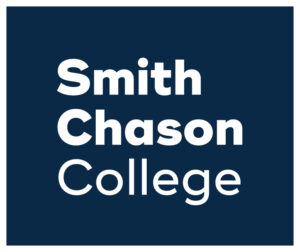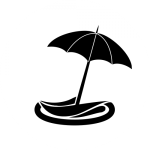Los Angeles
Convenient Schedules
From hybrid courses with online lectures and in-person skills labs and clinicals, to career guidance, our support network helps students achieve greatness in their nursing journey.
Student Resources for Student Success
When you become a Smith Chason College student, you gain access to a variety of technology, skills and simulation labs, nursing experts and mentors, and a full team to support you on your educational journey. Each College department provides student resources and services to facilitate your growth in your chosen program and into your career. From technology, tutoring assistance, NCLEX prep, and mock interviews, our team is here for you!
For over 25 years, the founders of Smith Chason College have made it our mission to produce graduates who display academic excellence with the highest levels of integrity. Smith Chason offers a learner-focused experience, with an evidence-based approach to your education that’s built on the knowledge of our professional nursing instructors.
We can’t wait to help you achieve your new career! To join Smith Chason College, prospective students will take a virtual or in-person tour of the facility and schedule a virtual interview with an Admissions Representative. During the virtual interview, our Admissions Representative will go through crucial information about Smith Chason College including, our history, disclosures of completion, placement and graduation rates, tuition payment plans, and your professional educational goals. Interested in an in-person tour? Fill out the form above to connect with our admissions team and schedule an appointment for a campus tour.
Frequently Asked Questions About Smith Chason College
How is education at Smith Chason College structured?
Lecture – Online through asynchronous courses, along with live Zoom lectures for real-time interaction.
Lab – Hands-on learning in person on campus, where you will practice essential nursing skills.
Clinicals – Our programs partner with medical facilities nationwide, providing 768 hours of clinical experience through externships and rotations, which may occur at various times.
Why is communication critical to my development and success as a nursing student?
In nursing, strong communication skills are essential not only in patient care but also in your education. The first few courses you take will lay the foundation for your nursing journey. If you find yourself struggling, whether it’s understanding the material or balancing school with personal life, it’s important to communicate with your instructors, student services, and program director. They can help you develop a plan to succeed.
How is learning to communicate in nursing similar to learning a new language?
Like learning a new language, as a nursing student, you will learn medical terminology that will become second nature in your future career. These terms will be critical when communicating with other healthcare professionals and evaluating patients. This knowledge builds from your first day and continues throughout your education and career.
How will I be prepared to help patients?
Nurses often care for people in challenging situations. You will encounter patients from diverse backgrounds, including those experiencing homelessness, mental illness, or severe pain. Compassion and professionalism are key. Your attitude and empathy can make a significant impact on a patient’s healthcare experience.
What hands-on work will I be expected to complete during my nursing education?
Nursing is a very hands-on profession. You’ll be required to touch and care for patients directly, which means becoming comfortable with physical contact.
You’ll also manage equipment, often while multitasking, making hand-eye coordination an important skill.
Why might vaccinations be required by my externship site or future employer?
Vaccinations may be required by your externship site or future employer. Because you will be exposed to various illnesses in the healthcare setting, vaccinations are often required. This may include flu shots, Hepatitis, TB tests, COVID-19, and others, depending on the policies of your externship site or future employer.
Why is the externship a critical part of my nursing education?
Externships and clinical rotations, totaling 768 hours of hands-on experience, may occur at varying times, with students responsible for transportation, including travel over 75 miles. Clinical work with real patients is essential for graduation and state board licensing. You’ll need to maintain a high level of professionalism and follow the guidance of your mentors.
What is a transfer credit?
Transfer credits are evaluated by Smith Chason College’s Registrar’s Office. They must be from a college-level course. AP high school courses do not qualify for transfer credit.
Am I eligible to take registry or certification exams?
Yes, graduates who successfully complete their program are eligible to sit for certification exams, including NCLEX exams (PN or RN) for nursing and various medical imaging certifications such as ARRT(S), ARRT(MR), ARMRIT, and ARDMS. For imaging students, specific exams like the SPI and CCT can be taken after completing courses PHY202 and CAR220, respectively. Smith Chason strongly encourages obtaining certifications to enhance your knowledge and job prospects in both nursing and medical imaging fields.
Where will I complete my clinicals?
Smith Chason College partners with hospitals, clinics, rehabilitation centers, and other medical facilities nationwide to provide clinical rotations and externships. These hands-on experiences can occur during the day, evenings, or weekends, depending on the site’s schedule. Students are responsible for their transportation and may need to travel over 75 miles, possibly out of the area or state. All students must meet vaccination, health screening, and background check requirements, as clinicals involve working with real patients to fulfill graduation and state board licensing requirements.
What certifications do nurses need?
All registered nurses who want to work in California must be licensed by the National Council of State Boards of Nursing by successfully passing the NCLEX-RN exam. NCLEX preparation is a key part of our curriculum, and we take pride in preparing our students to pass their licensure exam.
Smith Chason College’s current NCLEX-RN pass rate for our Los Angeles Associate Degree in Nursing (ADN) program is 100%!*
*Current NCLEX-RN Quarter Rates for Q4 2023 to 2024 NCLEX reporting cycle for our Los Angeles ADN program. Please visit the California Board of Registered Nursing for more information about NCLEX-RN pass rates.
In addition to the NCLEX-RN, most new nursing graduates are expected to have Basic Life Support (BLS) certification, and some may also need Advanced Cardiovascular Life Support (ACLS) or Pediatric Advanced Life Support (PALS).
There are also several specialized certifications nurses can pursue to open up more career opportunities, such as:
- IV Therapy
- Long-term care
- Wound care
- Oncology
- Hospice and palliative care
And many more, depending on your career goals and areas of interest.
What are the admissions requirements for the Vocational Nursing and Associate Degree in Nursing (ADN) programs?
To apply for the Vocational Nursing program, candidates must meet Smith Chason’s General Admissions Requirements and pass the Wonderlic Basic Skills Test with a minimum verbal score of 302 and a quantitative score of 293. Additionally, applicants must:
- Complete a criminal background check
- Write a 500-word essay titled "Why I Want to be a Nurse"
- Interview with the Nursing Program Director, Assistant Director, or Campus Director
For the ADN program, applicants must meet Smith Chason’s General Admissions Requirements and pass the Test of Essential Academic Skills (TEAS) by ATI with a score of 65 or higher. This must be completed before beginning the application.
Steps for ADN applicants include:
- Register for the TEAS exam: Register for TEAS
- Prepare using resources:
- TEAS Prep Resources by ATI
- ATI TEAS Study Guide
ADN applicants must also:
- Be 18 years or older
- Submit proof of high school graduation or an equivalent recognized by the U.S. Department of Education (foreign transcripts must be evaluated by an approved agency)
- Provide a valid government-issued photo ID
- Write a 500-word "Letter of Intent"
- Interview with the Nursing Program Director or Designee
- Complete a physical examination, including:
- Student health form
- Tdap booster (if not within 10 years)
- MMR, Varicella, and Hepatitis B titers (with immunizations if titers are negative)
- 2-step Tuberculosis (TB) test with TB surveillance survey (or chest X-ray if positive)
- Annual flu vaccine (or waivers if required)
- COVID-19 vaccine (if required by clinical sites)
- Provide proof of Basic Life Support (BLS) certification (American Heart Association)
- Complete a criminal background check, fingerprinting, and urine drug screening before clinicals (students cover costs)
- Obtain Nursing Liability Insurance as required


